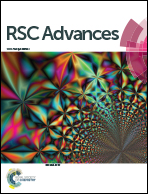Room temperature ferromagnetism in metallic Ti1−xVxO2 thin films
Abstract
Transition metal doped TiO2 diluted magnetic semiconductors have attracted considerable interest due to their room temperature ferromagnetism. However, most TiO2 films are highly insulating, and thus the magnetic properties can not be controlled by tuning the carrier concentration. This will limit their application in controlling magnetization via electrical gating. Here, we deposit rutile Ti1−xVxO2 (x = 0.03 and 0.05) films with the thickness between 30 and 245 nm by the pulsed laser deposition technique, and observe an obvious room temperature ferromagnetic behavior in all films. The high resolution X-ray photoelectron spectroscopy results indicate that V substituting Ti4+ ions in the TiO2 lattice, with the +3 valence state having two unpaired d electrons, is responsible for the local spin. More importantly, the systemic investigations of transport properties for Ti1−xVxO2 films reveal that the films are n-type and have metallic conductivity with a carrier density of about 1020/cm3. Further studies suggest that the oxygen vacancies play a dual role of contributing to the metallic conductivity of the Ti1−xVxO2 films, and also providing the free electrons to mediate the long-range ferromagnetic coupling between two magnetic polarons. These findings may offer promise for gate-tunable ferromagnetism in future semiconductor spintronics.



 Please wait while we load your content...
Please wait while we load your content...